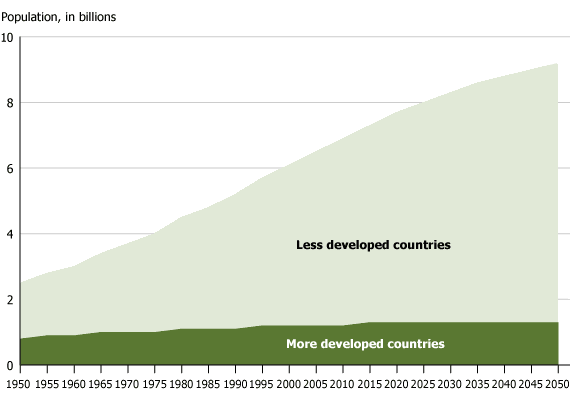Sperling's Best Places tries to answer its many postings are along the lines of "I'm moving [or thinking of moving] to X, what's it like?" Residents of X in turn describe, gush over, or flame the place they live. Supposedly, by reading lots of the comments, a reader can get a feeling for their potential new location.
Stories rating "best places" are a standard space filler for news media. It's mostly a pointless exercise. First, your Shangri-la (assuming there is such a thing) might be jumping hell for me, and vice versa. Everyone has their own tastes in lifestyle, climate, geography, demography, and all the other metrics of quality of life. Further, reading residents' evaluations of many far-flung cities show that what they hate about their environs is widely echoed elsewhere.
I like the site because it offers a fascinating window on the values of people all over the country, who are probably more candid than they would be if questioned in a formal survey, let alone for a print or video piece where they knew they would be quoted.
The postings at Best Places by residents of various cities -- mostly large and medium-sized ones -- are of course not a representative sample of the U.S. population. But you get the impression this country is brimming with folks who want to live somewhere other than where they do. For example (all quotes are verbatim and unedited):
Soon to retire, my husband and I are looking for a small town (around 5000). We are looking for very friendly people; local activities like festivals, liberal artist and an active art community. We need a good library and a theater that shows indi as well as first run films. Summer concerts in the park would be great. We would prefer a town who has not welcomed big box stores as we prefer to support local businesses. the last thing is it needs to be affordable and near water!!
Best of luck to this couple. But it's hard to believe that anyone could reach near-retirement age and still believe there is such a patch of heaven on earth, and affordable to boot. This is the same kind of magical thinking that leads people to place personal ads describing their ideal partner, in the belief that a list of ideal specifications will make such a person materialize.
Some commenters helpfully try to present a balanced account of the good, bad, and indifferent about their home cities. Otherwise, the stories are roughly equally divided between lavish endorsements (some of which sound like they are written by PR people or real estate agents) and warnings to stay away. Every city has both.
Orlando, anyone?
Orlando, is the land of endless summers. It is so beautiful walking around Lake Eola in the spring with the Palm Trees and swans.
Endless summers ... palm trees ... lake ... swans ... sold! Or maybe not:
Orlando is terrible. I went to middle and high school in Orlando, and it is a joke! Get out of there as soon as you can! I am currently in Dubuque, IA which I do not like, but at least I have a decent paying job while I work on my degree.
If you're in Dubuque, count your blessings! And (a different commenter):
This is a right-to-work state, meaning I could be fired at any moment without a reason. It's good to feel valuable. Thanks, Florida!
Er, friend, I'm sorry to break the news that unless you work for the federal government, anyone, anywhere can be fired quicker than you can say Jack Robinson. "The Board and I have discussed the matter thoroughly, and we have determined that your eye color is unacceptable. As if that wasn't enough, you do not speak Spanish. A security guard is in your office; please clear out your belongings in the next 30 minutes."
You will not be surprised that commenters frequently cite the diversity of their home base. Usually it's offered as a positive factor, although occasionally someone notes in guarded language that the cultural enrichment is not an unmixed blessing.
New York:
The thing that alwasys strikes me about Manhattan is its diversity. It is truly a "world" city on par with London, Paris etc interms of the different cultures and people commonplace here. No other city in the US seems to have such a diverse population.
LA:
Now what I do like about LA is that there is lots of great food, plenty of diversity, politically open-minded people, though in the suburbs are typically more conservative than those in the city, but still open-minded in their attitudes.
But -- same commenter:
It seems like it's impossible to have a different opinion of this place without being ridiculed. [Hmm, even in the suburbs people are open minded unless you have a different opinion.]
Also the traffic, and the fact that it's virtually unavoidable. There is hardly any mass transit, the metrolink is not the most efficient light rail, yes there's buses everywhere, but they're not that efficient either. In other words, it is almost a legal requirement to have a car here, not joking on this one. I miss having the MAX train of Portland, that went almost anywhere. Once I have my chance, I'm leaving this place, most likely it'll be San Francisco or New York, or some place like those.
Perhaps this person will find bliss in San Francisco:
Crowded, dirty and loud...but you can't beat it! It's a fun place to live, work and play; interesting people and beautiful weather.
Unlike Orlando, Dubuque, etc., I have actually lived in San Francisco. It's a fun place to work and play? I suppose so, if you like places that are crowded, dirty, and loud, and who wouldn't?
As for interesting people, I recall having many remarkable conversations with street people about the philosophical and sociological issues arising from a request that I give them a handout. Beautiful weather, you betcha, the only place in the lower 48 where you can freeze in mid-summer.
A former SF resident writes:
Since moving to NY, my life has improved and I can attest to saying that it isn't always better in CA. In a city with one of the smallest population of children per capita, being one of the largest cities in the US with a black population under 13%, and a homeless population that is beyond rediculous, paradise is lost
Maybe our mass transit fan would rather head for New York.
New York City is a Dickensian parable: the best and the worst. Museums proliferate as readily as blossom sin spring; restaurants of every imaginable cuisine abound. Yet there are potholes everywhere. Manhattan is favored over the rest of the City. It is time to leave, finally. [End of comment]
That could be a problem, museums and restaurants in potholes. Abandon ship.
I know everyone from outside of the U.S. or the East Coast region is crazy about New York but if you live here long enough, you will realize how the quality of life is so low in comparison to many other places. Over the years, public transportation has diminished in quality with out of control construction projects and subway line interruptions that delay your travel plans. If you live in another borough and wish to travel into Manhattan, it will take you more than an hour to get from Point A to Point B and with weekend projects, you will have to switch several times and walk up several long flights of stairs in the subway stations.
But at least you can live without a car! That is a much-desired goal, if Best Places is anything to go by. Different values: if you prefer to depend on municipal services for transportation, more power to you -- no, I guess you want to reduce your energy footprint, so less power to you. Me, I've lived without a car involuntarily at various times, because I was too poor to own one. I still think of owning a car as a luxury. Theoretically, I suppose it would be an advantage to live where you don't need one, but I hope I never again spend a single hour of my life waiting for a bus.
It seems from Best Places that lots of people want to escape from similar plagues: traffic, high housing cost, rudeness and impersonality, disagreeable weather, crime. Unfortunately, the same source offers evidence that such drawbacks are hard to leave behind in contemporary America.
The comments suggest (often unconsciously) that an individual's psychology, personality, and financial status can affect whether they enjoy living somewhere more than anything intrinsic to the place.


















